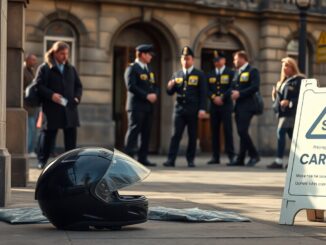Brent Franson's fear of Alzheimer's led him to transform his life dramatically.

Topics covered
Brent Franson faced a haunting fear: the specter of Alzheimer’s disease loomed large in his mind. Growing up, he watched helplessly as loved ones succumbed to the condition, their once vibrant lives reduced to vacant stares and lost memories.
This fear crystallized when he developed the Death Clock app, an innovative tool designed to predict the timing and cause of death based on personal metrics. When Franson inputted his information, the result was staggering: a projected death at age 76, with Alzheimer’s a likely culprit.
It was a wake-up call.
Confronting a grim future
At the age of 43, Franson recognized the ticking clock of his life. He had battled an addiction to antidepressants and sedatives in his younger years, which left him with chronic sleep issues—a known risk factor for neurological decline.
Coupled with a family history of dementia, his lifestyle habits were a perfect storm brewing for disaster. Late-night work, heavy dinners, and the pressures of fatherhood only exacerbated the situation.
However, Franson refused to be a passive participant in his fate. Instead, he decided to seize control, transforming himself into what he dubbed a ‘sleep athlete.’ He meticulously revamped his daily routine, prioritizing rest and exercise while striving for a better work-life balance.
Transforming life through discipline
One year later, he ran his data through the Death Clock again. The results? An extra nine years of life expectancy had been added to his projection. While Alzheimer’s remained a potential threat, other risks like cardiovascular disease and cancer joined the list. “Something has to kill you eventually,” he reflected, emphasizing that his deepest fear was not death itself, but the prospect of living with Alzheimer’s.
The reality is stark. With the aging population in the United States, the rate of Alzheimer’s is set to climb dramatically. Currently, approximately 6.8 million Americans suffer from the disease, and by 2050, this figure could soar to nearly 13 million. Franson’s transformation serves as a poignant reminder of the need for proactive health measures.
The science of sleep and health
Research indicates that insufficient sleep, particularly the absence of deep sleep, significantly raises the risk of developing Alzheimer’s. Studies show that without proper rest, the body struggles to clear harmful waste products from the brain, leading to dangerous protein clumps that elevate the risk of dementia. Alarmingly, more than one in three adults fail to meet the CDC’s recommendation of at least seven hours of sleep each night.
Franson took actionable steps to combat this risk. He eliminated mobile phones from his bedroom, established a strict bedtime of 9:30 PM, and made sure to eat his last meal by 5:30 PM. Experts advise that eating too close to bedtime disrupts sleep, as the body is still busy digesting. This simple yet effective adjustment helped ensure he achieved a restful night’s sleep, crucial for cognitive health.
Creating a sleep sanctuary
To further enhance his sleep environment, Franson lowered the bedroom temperature to a cool 60°F (15°C), as optimal sleep typically occurs within the 60-67°F range. He also installed double blackout blinds to eliminate all light, recognizing that darkness is essential for melatonin production and restful sleep.
Additionally, Franson made the bold choice to cut out alcohol entirely. Numerous studies link alcohol consumption to sleep disruption, particularly reducing REM sleep, which is vital for memory consolidation. The Alzheimer’s Society highlights that alcohol can negatively impact the brain’s white matter, crucial for inter-region communication.
Active living for longevity
Incorporating regular exercise into his routine was another pivotal change. Franson embraced a mix of weight lifting, cardio, and yoga. Research supports this; a study published in 2022 found that consistent vigorous activity can reduce the risk of developing dementia by 35%. Even light activities like household chores contribute positively, lowering the risk by 21%.
Franson’s experience underscores a crucial message: the conversation about longevity often overlooks the fundamental trio of sleep, diet, and exercise. While advanced health technologies are enticing, they pale in comparison to these basic lifestyle changes. “People get caught up in the latest trends, but sleep, diet, and exercise are the pillars of longevity,” he noted, emphasizing the significance of these choices in enhancing one’s life expectancy.
As the clock ticks on, Franson’s journey stands as a testament to the power of informed choices. His story isn’t just about dodging Alzheimer’s; it’s a rallying cry for all to take charge of their health destiny. What else can we do to safeguard our futures? The answers lie not in complex solutions, but in the simplicity of daily decisions.




